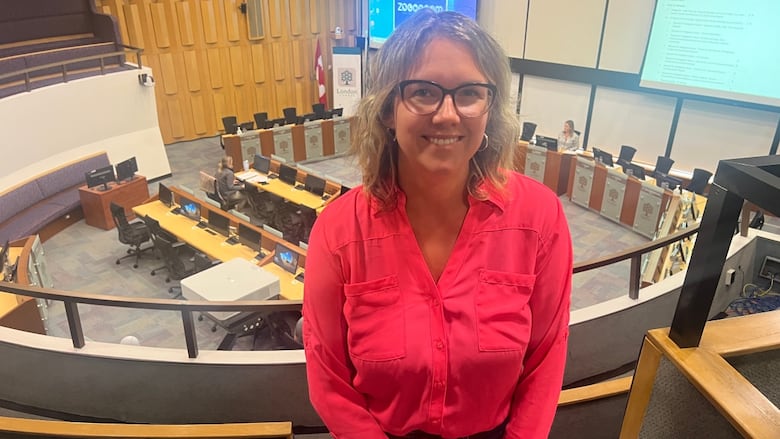Faced with hate, municipal politicians want help turning down the temperature
Motion asks for federal assistance to protect local politicians from vitriol, violence

Emails and social media posts laden with invective and personal insults toward municipal politicians.
Parking-lot tirades by councillors who follow colleagues outside after intense city hall exchanges.
Phone calls to threaten councillors — or even their families.
London city Coun. Skylar Franke heard these and other anecdotes from politicians from across Canada at the June conference of the Federation of Canadian Municipalities (FCM) in Calgary.
Hate and harassment directed at municipal politicians has become enough of an issue that FCM delegates passed a resolution asking the federal government to step in look at ways to turn down the temperature and make the job safer.
"We heard about death threats, derogatory language, especially directed at women and people of colour and people with disabilities," said Franke. "Some are scarier than others but it was almost universal that someone had a story to share."
Social media a big factor, Franke says
Franke, a first-term councillor who once had someone ask for her home address so they could deliver used syringes to her house, said she suspects social media may be a driving factor in the trend.
She said in online exchanges, people seem emboldened to hurl all manner of insults while remaining anonymous.
"The worst kind of information I've had hurled my way was through social media or email," said Franke, who serves on the Ontario caucus of the FCM board.
The text of the approved FCM resolution warns of an "alarming rise in incidents of harassment, intimidation and acts of violence aimed at elected local government officials."
It comes at a time of increased awareness about political violence in Canada and the United States after last weekend's attempted assassination of former president and current Republican presidential nominee Donald Trump.
Even before the Trump shooting, Canada's RCMP commissioner asked federal politicians to look at laws that would make it easier for police to pursue charges against people who threaten elected officials.
Former public safety minister Marco Mendicino is calling for the creation of "protective zones" around political constituency offices to shield members of Parliament and their staff from a rising tide of threatening behaviour.
For now, she'd rather not run again

Kelly Elliott endured her share of online insults and harassment while serving as deputy mayor for the municipality of Thames Centre and a councillor for Middlesex County, she said.
"It really got worse after COVID," said Elliott, who has been out of municipal politics since she lost a close mayoral race in Thames Centre in 2022.
"When you're a local politician you're really a lightning rod for it because you're active in your community people know you," she said.
When she served on the Board of Health for the Middlesex-London Health Unit, people threatened to report her to children's aid services for vaccinating her children. During that time, she received a death threat.
"I got calls about how women shouldn't be serving on council, that we're too emotional, that kind of thing," she said. "Someone told me they weren't voting for me because they didn't like the way I do my hair."
Elliott supports the spirit of the FCM motion, but she's also skeptical about its ability to cool down a political environment that has become so polarized and toxic.
"I've been out of politics for a year and a half and if you asked me right now if I would consider running again, my answer would be 'no'," she said.